when people from all over Vietnam and even overseas usually visit the Huong (Perfume) Pagoda.
Having spent VND5 million (US$230), Sau is now counting each day that passes, while following the latest news from the Ministry of Health about the novel coronavirus (Covid-19). He is desperate for the epidemic to subside so he can get back on the water and paddle pilgrims to the pagoda and support his family.
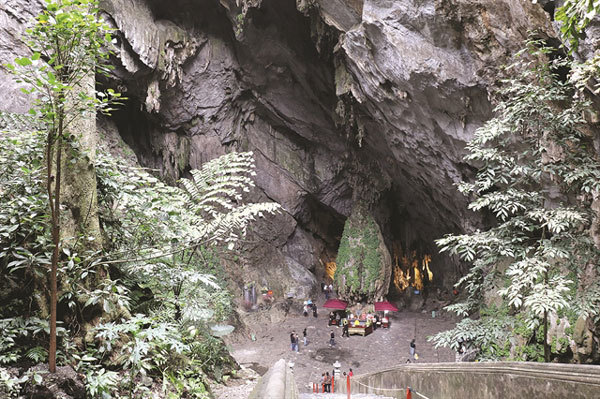 |
| CAVERNOUS: Huong Tich Cave, named by Lord Trinh Sam in 1770 as the most magnificent cave in what was known as the Southern land. The Perfume Pagoda Festival is the country's oldest and biggest, and usually draws more than a million visitors each year. |
"This is a natural calamity we could not plan for," he says with a sad smile. "We have to follow the ban, but plan for when everything goes back to normal."
Making ends meet as a construction worker during the year, Sau returns home to his picturesque Perfume Pagoda to take pilgrims to and from from the pagoda, tucked away in a beautiful grandiose cave in a remote mountain, accessible only by a one-hour boat ride and another half hour walk up the steep stone steps.
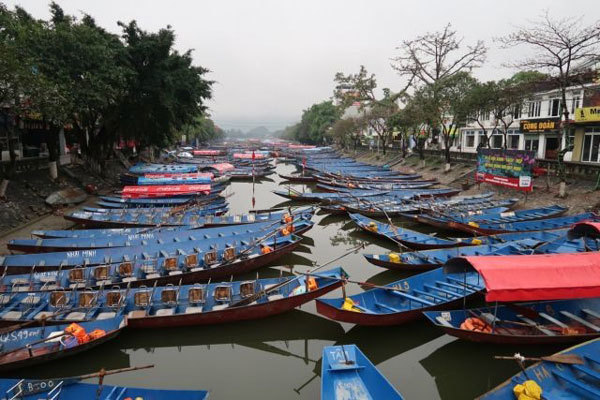 |
| DOCKED: At the wharf near the Perfume Pagoda, miles after miles of empty boats lay idle as all festive activities have been halted due to fear of the Covid-19 epidemic outbreak. VNS Photo Pham Hoang Van |
The bad luck arrived on the first day of Tet, or Lunar New Year festival. Sau received a phone call telling him to shut down his service, but the second day, he paddled his first clients to the Perfume Pagoda.
Like other families in his village, for the past 10 years or so, Sau's family and others have been working around the festival. Sometimes they take their holiday a week early so they are still ready to ferry pilgrims and tourists during the height of Tet. They held big family dinners on the 23rd of the 12th lunar month, then planted young rice for the next crop before preparing for the new holiday season.
On the sixth day of the Lunar Year, the Perfume Pagoda Festival, Vietnam's oldest, biggest and longest-running festival, was officially opened at the Trinh Temple, the first stop on the three-stop journey to the Perfume Pagoda.
This year, due to the epidemic, the number of visitors has dropped sharply.
Tourism suffers
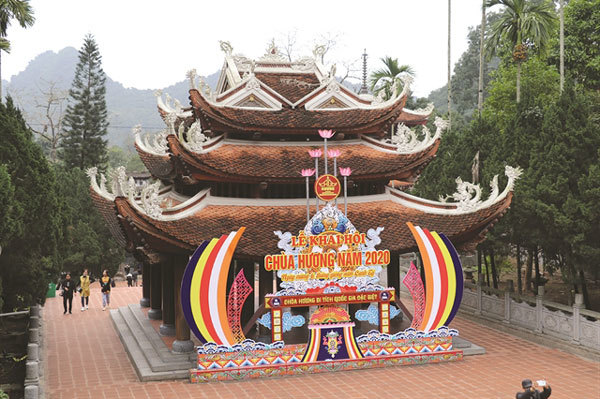 |
| SHOW TIME: The 2020 Perfume Pagoda festival kicked off on January 30, but saw a sharp drop in visitors due to the devastating Covid-19 epidemic. |
Despite this, the tourism sector cannot sit still, and everyone from Sau at the Perfume Pagoda to leaders of the country's tourism sector are taking action.
At a press conference held on February 6, Chairman of the Administration for Tourism Nguyen Trung Khanh said estimated losses in the next three months would range from US$5.9-7.7 billion, with the number of Chinese tourists dropping from 90 to 100 per cent. That meant a drop of between 1.7 - 1.9 million Chinese tourists, equivalent to $1.8-2 billion loss.
Other areas predicted a fall in tourist numbers of 50-70 per cent, resulting in a loss of $2.2-3 billion.
Based on a 2019 spending report from the tourism authority, all service sub-sectors including accommodation, dining, transportation, tours, entertainment and shopping could all lose $1-1.8 billion.
"The tourism sector is prepared to bounce back when the epidemic subsides," Chairman Khanh was quoted as saying at the press conference.
Health officials have estimated the Covid 19 epidemic could reach its peak in mid-February and slowly subside toward the end of March.
"It will take enormous effort to bring tourists back again even after the epidemic, but we have plans to come back in April with our focus on the local and long-distance markets, where the impacts of the epidemic have been minimal.
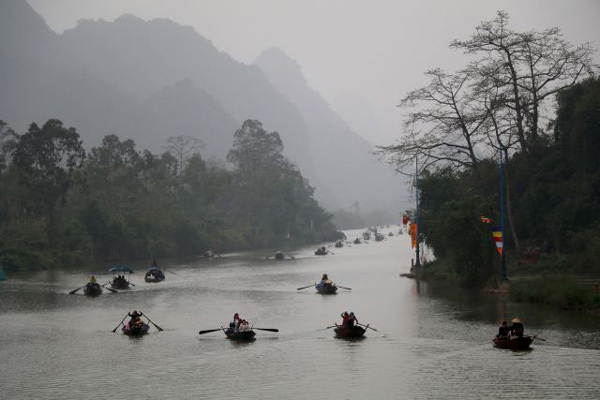 |
| LONELY MOUNTAIN: Yen Vy Stream is peaceful at the moment, so it's hard to imagine the usual height of festival season. |
Nguyen Hong Ha, deputy general director of Vietnam Airlines, said at the press conference that he believed that when the epidemic subsides, there would be a sharp increase in both local and international tourists.
"We need to be prepared with a detailed plan, because after the SARS outbreak in 2003 both local and international markets recovered quickly," he said.
Representatives shared their belief in the market's ability to recover, expressing confidence in the health sector's ability to control the epidemic.
Vu The Binh, vice chairman of Vietnam's Tourism Association, said: "The current epidemic is an unexpected incident, but it is also an opportunity for the tourism sector to give additional training to staff and improve accommodation and facilities to serve visitors better in the future."
Deputy Minister of Culture, Sports and Tourism Le Quang Tung said he was steering the country's tourism sector toward new markets, such as India with its one billion-plus population.
Believing there will be a sharp bounce after the epidemic, Tran Trong Kien from the National Tourism Consulting Council suggested the Government could lift or lower tax rates, issue visa waivers or lower the fees to lure visitors back.
Tranquil Perfume Pagoda
At Duc Wharf, where visitors usually step out onto small bamboo-leaf like metal boats to start their journeys, miles and miles of empty boats are anchored along the side of the canal.
More than five thousand boats lay idle at the wharf.
"We count the tickets sold every day, and it's only a few hundred," said a man we met at the pagoda.
At the cable car station, Nguyen Thi Thu Ha who works on the ticket counter said: "On February 9, we welcomed 10,000 visitors."
This represents a huge jump from when the ban was lifted on February 2.
On Monday, we stopped at Chien Thang Restaurant at Thien Tru Wharf. In the empty restaurant that can serve up to 250 clients at the same time, Trinh Thi Vinh, 46, said: "Now we only have 10 customers a day."
Last year, more than 1.4 million people visited the Perfume Pagoda, contributing 69 per cent to the district's entire income, according to a report from the District People's Committee.
"The record was 70,000 visitors in one day a few years back," revealed a man we met from the festival's management board, who declined to give his name.
Despite the news about school closures and flights and accommodation shut down, some optimists said this was a good chance for the nature around the Perfume Pagoda to revive and regrow.
"Local people also need to maintain their regular jobs to ensure their incomes, not just fall on the soft bed of easy income from tourism," said a frequent traveller.
But to look at the matter more closely, the Perfume Pagoda Festival runs from the first to the end of the third lunar month, usually between late January and early April.
"In the first lunar month, I used to wake up at 3am and finish my day at 10pm," said Vinh, the restaurant owner.
"In the morning, seeing a full house of people having breakfast was very satisfying. I didn't mind the long hours."
But that only lasted for the first lunar month, and after that the numbers slowly declined.
And for the boat rower Sau, the most trips he makes in a day now is only three, which mean six hours of rowing back and forth.
"My muscles get burnt and swollen, so I use Salon Pas pads to cool down," he said. "But I don't mind waking up at 3am and working until 9pm. I'm looking forward to people returning to the Perfume Pagoda, bringing energy and joy. If people come, I can pay back the investment I spent on my boats." VNS
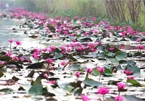
Discovering stunning water lilies of Yen stream
Water lilies can be spotted entering full bloom throughout Yen stream during autumn in the Perfume Pagoda complex, creating breathtaking scenery for visitors to enjoy.
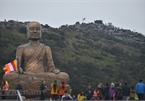
The majestic beauty of sacred Yen Tu Mountain
The beauty of Yen Tu is the grandeur and tranquility of the mountains and forests mingled with the serenity and ancientness of the system of pagodas, towers and Zen realms.
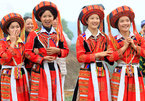
Mountain spring festival comes to capital
A series of events reflecting the festive atmosphere in northern mountainous regions is being showcased throughout January at the Village of Culture-Tourism of Ethnic Groups in Vietnam in the western outskirts of Hanoi.
 When he sent three of his four boats to be upgraded with better seating and canopies, Trinh Van Sau was hoping he could recover his investment this festive season,
When he sent three of his four boats to be upgraded with better seating and canopies, Trinh Van Sau was hoping he could recover his investment this festive season,